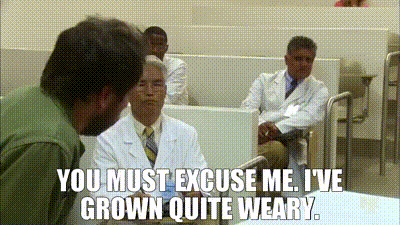I ~~could~~ couldn't care less
Hold ~~down~~ the fort
The proof ~~is in the pudding~~ of the pudding is in the eating
~~elon musk~~ Twat
1) Be nice and; have fun
Doxxing, trolling, sealioning, racism, and toxicity are not welcomed in AskLemmy. Remember what your mother said: if you can't say something nice, don't say anything at all. In addition, the site-wide Lemmy.world terms of service also apply here. Please familiarize yourself with them
2) All posts must end with a '?'
This is sort of like Jeopardy. Please phrase all post titles in the form of a proper question ending with ?
3) No spam
Please do not flood the community with nonsense. Actual suspected spammers will be banned on site. No astroturfing.
4) NSFW is okay, within reason
Just remember to tag posts with either a content warning or a [NSFW] tag. Overtly sexual posts are not allowed, please direct them to either [email protected] or [email protected].
NSFW comments should be restricted to posts tagged [NSFW].
5) This is not a support community.
It is not a place for 'how do I?', type questions.
If you have any questions regarding the site itself or would like to report a community, please direct them to Lemmy.world Support or email [email protected]. For other questions check our partnered communities list, or use the search function.
6) No US Politics.
Please don't post about current US Politics. If you need to do this, try [email protected] or [email protected]
Reminder: The terms of service apply here too.
Logo design credit goes to: tubbadu
I ~~could~~ couldn't care less
Hold ~~down~~ the fort
The proof ~~is in the pudding~~ of the pudding is in the eating
~~elon musk~~ Twat
"Hold down the fort" and "the proof is in the pudding" is how those phrases are currently used in the US, regardless of their origins, and they still make sense. "Could care less" is objectively wrong unless you're trying to indicate that you do kinda care.
The last correction is accurate.
I don't generally correct people's spelling or pronunciation but something I've noticed occurring more and more lately is people using "loose" when they mean "lose" and it gets under my skin for unknown reasons
It's a loose loose situation.
In the USA and other English-speaking countries: weary =/= wary.
For example, I'll see someone write something like: "I am weary of the campfire because it is so hot"
You aren't tired of the campfire! You are wary of it!

Oh my goodness, someone pointed this out on Tumblr years ago, but it desperately needs repeating:
Dear English Language Fanfic Writers,
Wanton: an unrestrained desire, usually of a sexual nature.
Wonton: a type of dumpling found in Chinese and East Asian cuisine.
I wanton for wontons
In American English:
I left them know
I'm just leaving you know
No, no, a thousand times no!
You LET them know. You're just LETTING me know.
Also, they were driving and hit the breaks. Their car needed new break pads.
Just letting y'all know, it's BRAKES that stop a vehicle.
If the vehicle breaks, it'll stop, but that's not the system built into the car that makes it stop on purpose at the press of a pedal.
I know how a break petal works, dummy.
I don't do it that much anymore as I learned to enjoy the freedom of using language, but I recently watched a miniminuteman video where he says pause for concern. which kinda makes sense so it's an eggcorn: something that would cause concern would hopefully also make one pause for a moment.
apparently this is a commonly misheard phrase though this was the first time I heard someone say it.
Can someone explain DEI and Affirmative action? 99% sure the right is using it wrong, but I live in a red state.
When the right uses it, it means one thing, when the left uses it, it means a different thing. Just like "woke".
DEI is corporate speak for an office or initiative to promote diversity, equity, and inclusion in a workplace. Diversity meaning not everybody there looks, talks, and thinks the same. Equity means that rules, compensation, etc., are fair for everyone, and inclusion means that people have a voice in decisions that affect them. Since historically, marginalized people have been black, female, indigenous, etc, DEI works specifically to correct unfairness towards them.
Since DEI is owned by corporate, there is only so much it can do to further these goals, and sometimes actively works to stall or placate people that have grievances with their workplace.
Affirmative Action is very similar, but usually specific to college admissions, compared to hiring workers.
I'm not an expert on DEI or Affirmative Action so if you want to know more about it try reading here:
https://www.reuters.com/world/us/what-is-dei-practice-trump-is-trying-dismantle-2025-01-30/
https://en.m.wikipedia.org/wiki/Diversity,_equity,_and_inclusion
https://en.m.wikipedia.org/wiki/Affirmative_action
Best of luck!
People capitalizing Random Words for emphasis, as if they're Proper Nouns.
Also getting 'a' vs 'an' wrong. It follows pronunciation, not spelling; so it's "a European" and "an honor".